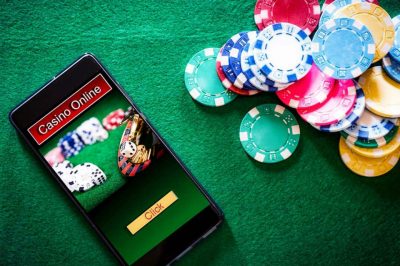 Patrons who enter a casino in British Columbia will soon have to present their ID in order to be allowed in as part of a recent initiative of the B.C. Lottery Corporation (BCLC) aimed at helping people who have registered for self-exclusion.
Patrons who enter a casino in British Columbia will soon have to present their ID in order to be allowed in as part of a recent initiative of the B.C. Lottery Corporation (BCLC) aimed at helping people who have registered for self-exclusion.
As revealed by the Corporation, the measure is set to be officially launched in the summer, with more information on the matter, including the implementation date of the measure, set to be unveiled in the upcoming weeks.
As the B.C. Lottery Corporation announced, security staff at local casinos will have to scan casino visitors’ IDs and the customers’ government-issued identification will be automatically checked against a list of all the people included in the Game Break self-exclusion program. The system, however, will not store any personal data for the individuals allowed to gain access to a casino.
The Crown corporation issued a statement in case it wants to have the healthiest players on a global scale. On the other hand, the individuals who participate in the Game Break program believe that the aforementioned identification checks are the best way of making sure that they would not be allowed to enter the casinos across the Province.
Game Break Program Unveiled to Help Problem Gamblers in British Columbia
 The competent authorities have designed the Game Break program in a way to help people who find it hard to control their gambling habits. According to the website of the B.C. Lottery Corporation, the program is designed especially for individuals who experience some gambling-related difficulties.
The competent authorities have designed the Game Break program in a way to help people who find it hard to control their gambling habits. According to the website of the B.C. Lottery Corporation, the program is designed especially for individuals who experience some gambling-related difficulties.
Players are already required to present identification when entering a casino, as they may be asked to confirm their age or identity for some processes such as claiming jackpot prizes, so the newest measures unveiled by the BCLC in an effort to provide better protection for local casino patrons would not be something new for locals. The statement of the Crown corporation also reminded customers that they have access to free prevention, support, and treatment services designed especially for problem gamblers through the Gambling Support B.C. service.
Meanwhile, anti-gambling campaigners have been blaming governmental agencies for the lack of up-to-date data regarding problem gambling in the country. According to an already outdated Statistics Canada study, in 2018, approximately 300,000 Canadian residents (or about 1.6% of the survey respondents) were exposed to moderate to severe risk of developing compulsive gambling behavior. The study found that most Canadians (about 95%) who confirmed gambling within a 12-month period at the time could not be categorized as problem gamblers, while another 3.4% of Canadian people were at low risk of gambling-related harm.
Campaigners claim that the actual number of gambling addicts in the country is much bigger, especially considering the fact that more opportunities for gambling buoy every day, and thanks to various websites and app developers, Canadians could now have a mini version of a regular casino literally in their pockets, with smartphones and other portable devices making it easier for people to gamble.
The study was aimed at examining the gambling habits of local people above 15 years of age, but it used data from the Canadian Community Health Survey (CCHS) that was compiled in 2018, and then applied the outdated findings to the Canadian Problem Gambling Index that is used to assess local people’s problem gambling behavior and the effects it has on their lives, physical and mental health, etc.